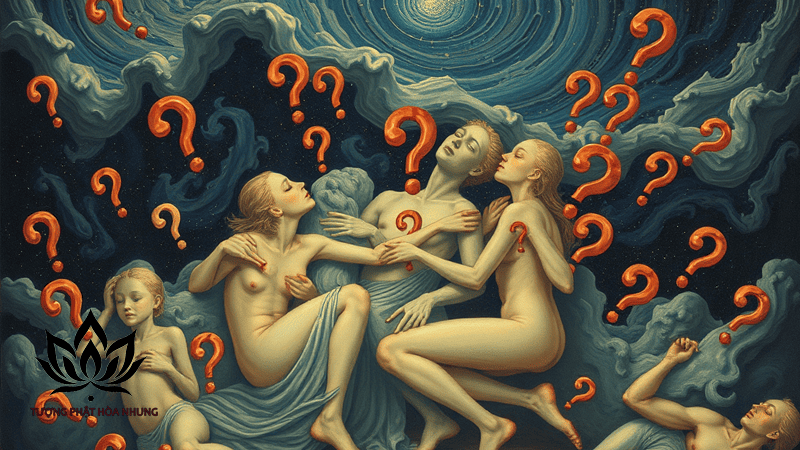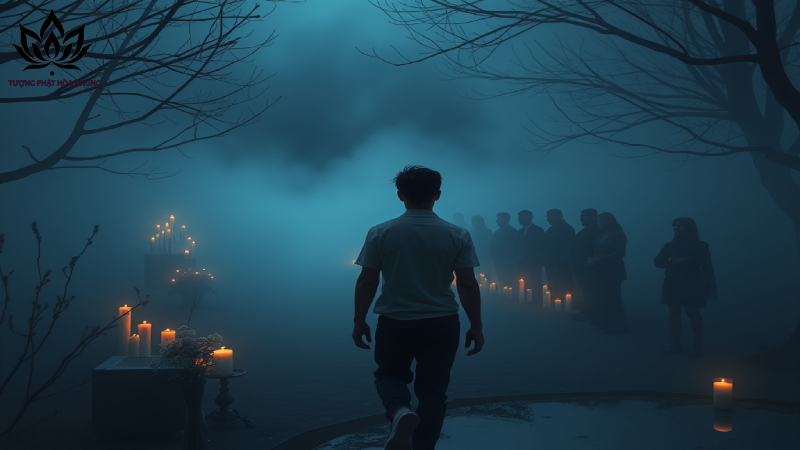Every night, when we close our eyes and drift into sleep, we enter a world shaped not by logic or routine but by emotion, memory, and the depths of our subconscious. Among the most common and emotionally stirring dreams are those where we see people—familiar faces, strangers, or even those we’ve long forgotten. But why do we dream about people? What does it reveal about our inner world, our desires, our fears?
Understanding dreams isn’t just a mystical journey—it’s a psychological exploration that can offer real insight into our mental and emotional health. In this in-depth article, we will decode why you might dream about people and what these dreams truly say about you.

What Are Dreams, Really?
Before diving into the specifics of dreaming about people, it’s crucial to grasp what dreams are. From a scientific standpoint, dreams are mental experiences that occur during REM (Rapid Eye Movement) sleep, when the brain is active and simulates sensory perceptions, emotions, and scenarios.
According to neuroscientific and psychoanalytic theories, dreams serve multiple functions:
- Emotional regulation
- Memory consolidation
- Problem-solving simulation
- Expression of unconscious desires (Freudian theory)
So when you dream of someone—especially someone significant—it’s not random. Your brain is trying to process something deeply connected to that person or what they represent.
Why Do I Dream About People I Know?
Dreaming about people you know—family, friends, coworkers, even exes—can be particularly intense. Here are some psychological explanations:
1. Unresolved Emotions
If you dream of someone you’ve had a recent conflict or tension with, your subconscious may be attempting to resolve the issue symbolically.
For example:
- Dreaming about arguing with your boss may reflect repressed frustration or a power dynamic in waking life.
- Dreaming about a friend who wronged you might indicate that you’re still processing that emotional pain, even if you’re consciously over it.

2. Emotional Attachments
Sometimes, we dream about people simply because they matter to us. This could be:
- A parent you deeply love or miss
- A romantic partner who’s on your mind
- A childhood friend whose presence made you feel safe
These people anchor emotional memories, and your brain revisits them as a form of comfort or reflection.
3. Projection and Self-Reflection
Here’s something most people miss: often, the people in our dreams represent aspects of ourselves.
Dreaming about your confident cousin? It might mean you’re yearning to embody more confidence.
Dreaming of an ex who betrayed you? That might reflect a fear of vulnerability or trust issues you’re working through internally.
Why Do I Dream About Strangers?
This might sound strange, but dreaming about people you’ve never met is very normal. In fact, your brain is great at mixing and matching facial features from real life to create new, fictional people.
So what do these strangers mean?
1. Symbolic Representations
The stranger might represent:
- A trait you admire or lack (e.g., independence, boldness)
- A warning (someone deceitful)
- A desire or fantasy
It’s less about the person and more about the feeling they bring up in the dream.
2. Subconscious Fears or Desires
If you dream about being chased by a stranger, it might not be about the stranger—but what you’re running from. The human mind often externalizes fear into dream characters.
Why Do I Dream About Someone Repeatedly?
This is where things get psychologically profound. Repeated dreams involving a particular person—especially if that person isn’t currently in your life—point toward a deeper emotional, spiritual, or cognitive pattern.
Possible reasons include:
- Unfinished emotional business
- Unmet psychological needs (e.g., affection, closure, justice)
- The person symbolizes a concept (e.g., freedom, betrayal, growth)
Let’s say you keep dreaming about your ex. It might not mean you want them back. It could mean:
- You miss the feeling of intimacy
- You’re comparing new partners subconsciously
- You’re trying to understand why the relationship ended

Dreams About Dead People – What Do They Mean?
Dreams of the deceased are among the most emotionally charged. These are some interpretations:
- Grief processing: Your mind is finding ways to deal with loss.
- Seeking guidance: In many cultures, dreaming of a deceased loved one is seen as a spiritual visitation.
- Guilt or regret: Maybe there were things left unsaid, and the dream becomes a mental conversation.
Psychologically, this could be your brain’s attempt at closure or reconnection. Spiritually, some believe it’s the soul visiting you. Either way, the emotions are real, and they’re worth sitting with.
Dreams of People You Don’t Like
Seeing someone you dislike—or even hate—in your dreams can be jarring.
But remember: negative emotion is still strong emotion. Your subconscious may be:
- Processing past trauma
- Rehearsing conflict resolution
- Exploring how to detach or set boundaries
In some cases, this person may represent a part of you you’re not comfortable with. Carl Jung called this the shadow self—the darker traits we all carry but often repress.
Romantic Dreams: Do They Mean You’re in Love?
Romantic dreams involving someone unexpected—like a friend or colleague—can leave you wondering if your subconscious is hinting at hidden feelings.
The answer? Not always.
Dreams are symbolic. That friend might simply:
- Represent emotional safety
- Be an embodiment of qualities you admire
- Appear due to proximity (you see them often, so your brain uses their image)
However, if these dreams are frequent and emotionally charged, they may be your mind’s way of nudging you to explore a potential attraction you’ve been avoiding.
Spiritual Interpretations of Dreaming About People
For those who lean toward spiritual or religious perspectives, dreams have a different layer:
- In Buddhism, dreams are illusions revealing our attachments, karma, and desires.
- In Christianity, dreams can be divine messages or tests.
- In Indigenous beliefs, dreams are portals to the spirit world, often involving ancestors or spiritual guides.
If you keep seeing someone in dreams, you might consider asking:
- Is this person a spiritual teacher?
- Am I being warned, or being healed?
- What lesson is this dream trying to convey?
The Role of Stress and Sleep Cycles
Sometimes, dreaming about people is simply the result of:
- Increased cortisol or anxiety
- Poor sleep hygiene
- Overthinking about someone during the day
If you’re stressed about someone—whether through love, hate, or concern—they’ll likely show up in your dreams because your brain is trying to process emotional energy.
A tip: journaling before bed, meditating, or simply resolving a thought loop during the day can reduce intrusive or repetitive dreams.
How to Interpret Your Own Dreams About People
Here’s a 5-step method you can use:
- Record the dream in detail right after waking up.
- Note your emotions in the dream – they matter more than events.
- Identify symbols – what does the person represent to you?
- Connect it to waking life – any unresolved situation?
- Look for patterns over time.
A one-off dream may be random, but repeated themes should not be ignored.
When Should You Worry About These Dreams?
In general, dreams are healthy. But if you:
- Can’t sleep due to recurring nightmares
- Feel emotional distress from dream content
- Start confusing dream events with real life
…it might be worth consulting a therapist or sleep specialist. Sometimes, repetitive dreams signal underlying anxiety, PTSD, or unresolved trauma.
Final Thoughts: Dreams Are Mirrors, Not Predictions
Dreams aren’t fortune-telling. They’re mirrors reflecting your current emotional, mental, and sometimes spiritual state. When you dream about people, especially those who stir emotions in you, it’s an invitation to reflect—not react.
Tượng Phật HN Ask yourself:
What is this dream trying to show me about myself, not just the person in it?
Because at the end of the day, every face you see in your dreams is still filtered through your own mind—and every message is a whisper from the deepest part of your being.








